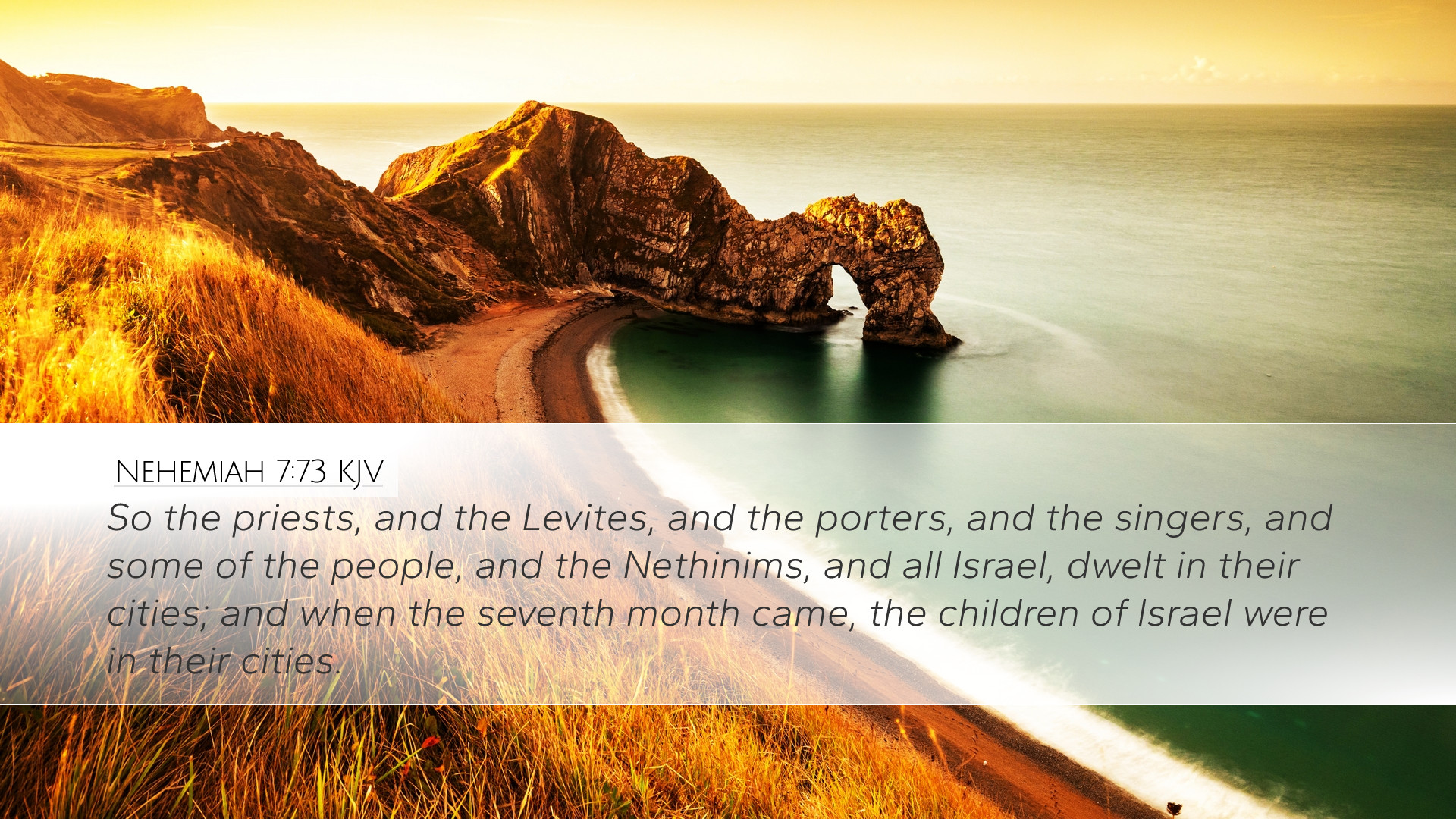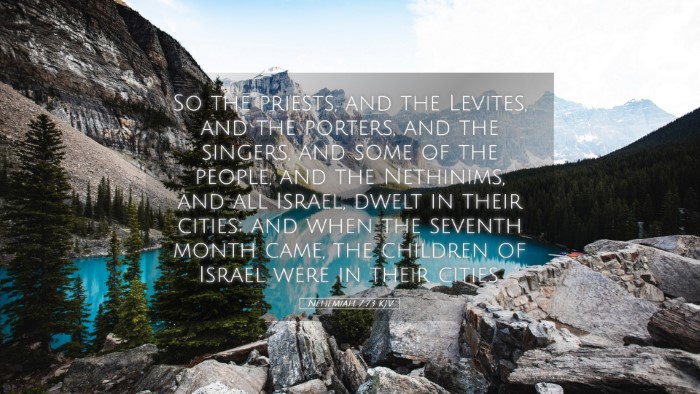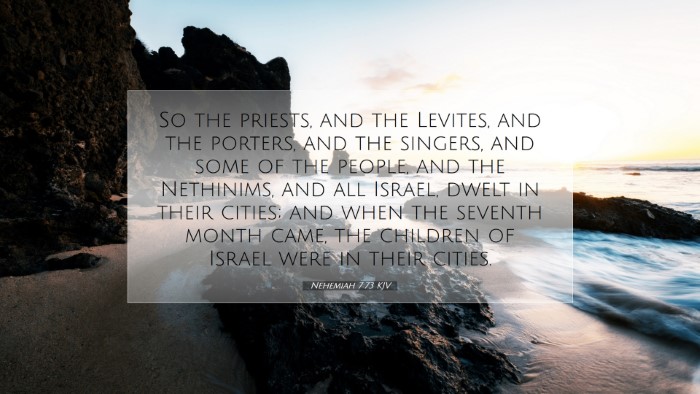Commentary on Nehemiah 7:73
Nehemiah 7:73 serves as an important conclusion to the meticulous account of the returned exiles and their restoration process in Jerusalem. It reads:
"So the priests, and the Levites, and the porters, and the singers, and some of the people, and the Nethinim, and all Israel, dwelt in their cities; and when the seventh month came, the children of Israel were in their cities."
This verse encapsulates the community's reestablishment in the Promised Land, emphasizing the roles of various groups and the significance of their organization. Below are organized insights from prominent public domain commentaries.
1. The Context of Nehemiah 7:73
Historical Background: The book of Nehemiah details the return of the Israelites from Babylonian exile. In chapters 1-6, Nehemiah recounts the rebuilding of Jerusalem's walls and the revival of the people’s spirits. Chapter 7 shifts the focus towards the population of Jerusalem and the ordering of the community, significantly highlighting the religious leaders.
The Seventh Month Significance: The seventh month in the Hebrew calendar is vital as it includes the Feast of Trumpets (Rosh Hashanah) and the Day of Atonement (Yom Kippur), followed by the Feast of Tabernacles (Sukkot). It marks a time of renewal and reflection for the returned exiles.
2. The Formation of Community
The Roles Highlighted: Nehemiah 7:73 mentions a specific group of people and their roles within the community:
- Priests: As spiritual leaders, they were responsible for leading worship and sacrifices.
- Levites: Assistants to the priests, ensuring the sanctity and order of religious practices.
- Porters: Gatekeepers of the temple, signifying vigilance and protection.
- Singers: Worship leaders, integral to the musical and praise aspects of worship.
- Nethinim: Temple servants who provided support service to the priests and Levites.
- All Israel: This phrase signifies the collective identity and unity of the people, reinforcing that every individual had a role in the restoration.
3. Theological Implications
Restoration and Identity: The gathering of the community is significant as it represents restoration not only of physical structures but also spiritual identity. According to Matthew Henry's Commentary, the returnees are shown to have reclaimed their heritage, a critical step towards re-establishing their covenant relationship with God.
God’s Faithfulness: Albert Barnes emphasizes that the re-establishment of cities underscores God’s fulfillment of promises made to His people. The organized community is a testament to divine fidelity and guidance amid restoration efforts.
4. Practical Applications for Today
Unity in Diversity: Nehemiah 7:73 stresses the importance of various roles within the community of faith. Just as different individuals and groups come together to form a vibrant church body, modern congregations too must embrace diversity in service and function.
Sacred Times and Seasons: The mention of the seventh month reminds contemporary believers of participating in sacred times. It is essential to observe spiritual rhythms and community gatherings that foster collective worship and renewal.
5. Conclusion
In conclusion, Nehemiah 7:73 is a poignant reminder of how God orchestrates the restoration of His people. The collaborative effort of the various groups sets a historical and spiritual foundation for returning exiles, ensuring that worship is central to their new life in Jerusalem. Through careful organization and roles within the church, a model is provided for today's community living.
In summary, this verse calls out to pastors, students, theologians, and Bible scholars alike, urging them to reflect on both individual and community responsibilities in responding to God’s plan. As we draw lessons from Nehemiah's leadership, we find guidance for promoting unity in our diverse communities and a call to engage deeply in the life of the church.


